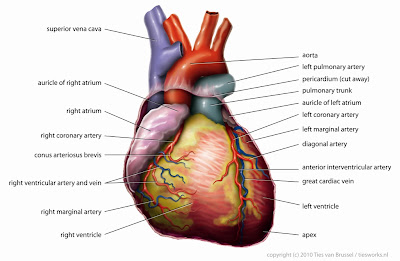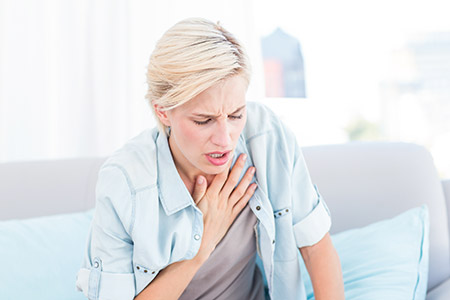Although heart disease is equally deadly to both genders, studies show that symptoms of heart attacks in women are sneakier and more difficult to detect than those that occur in men. Dr. Aristotelis Vlahos, the medical director of interventional cardiology at Riverview Medical Center in New Jersey says, “none of us are immune to vascular disease, and the symptoms in women are more subtle and more atypical than men and occur at an older age. Some of our predisposition may be due to providence, but we need to be diligent about addressing those areas that are within our control.”
What Happens During A Heart Attack
“A heart attack, or myocardial infarction, occurs when blood flow to the heart muscle gets blocked and can result in anything from a stable response to sudden death,” says Dr. Vlahos. “The location of the blockage and the size of the affected area will determine the degree of damage to the heart.”
Best Ways To Prevent A Heart Attack
When it comes to prevention of heart attack, Dr Vlahos says, “the best approach is to maintain an ideal weight for your height and body type, engage in a moderate amount of aerobic exercise, refrain from smoking, don’t drink or eat excessively, get regular sleep and try to minimize stress.”
 Dr. Chauncey Crandall, chief of Palm Beach Cardiac Transplant Program in Florida believes “Heart disease is not something you automatically get as you grow older. It simply does not have to exist. In fact, in some cultures it doesn’t exist.”
Dr. Chauncey Crandall, chief of Palm Beach Cardiac Transplant Program in Florida believes “Heart disease is not something you automatically get as you grow older. It simply does not have to exist. In fact, in some cultures it doesn’t exist.”
The good news is — once you know how heart disease gets started and what fuels it, you can easily stop and reverse it,” Crandall says. “Imagine living a life free of heart disease. Not only will you feel great and have much more energy to do all the things you want, but you’ll have peace of mind, too.”
Crandall says it’s up to each individual, women or men, to take charge and stand up to heart disease. “Don’t be a sitting duck for heart disease. And don’t let your loved ones suffer, either.
It’s not necessary anymore,” says Crandall. “We have the knowledge to detect the symptoms of a heart attack in women and the tools to prevent, stop, and even cure heart disease.”
Thanks for reading today’s post.
-Chauncey W. Crandall MD

